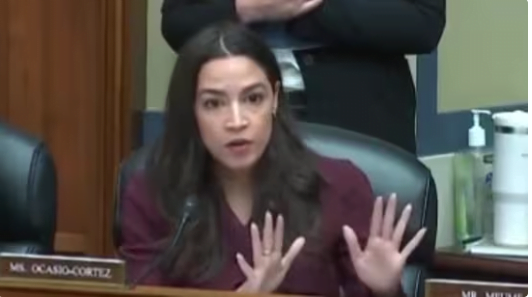Dive deep into the controversy surrounding RICO as Rep. Alexandria Ocasio-Cortez challenges its criminal nature. Explore the history, implications, and real-world applications of the Racketeer Influenced and Corrupt Organizations Act.
In a heated exchange during the impeachment probe hearing, Rep. Alexandria Ocasio-Cortez stirred a debate by asserting that Racketeer Influenced and Corrupt Organizations is not a crime but a category. Let’s delve into the intricacies of, its historical context, and its contemporary relevance.
Introduction: Unpacking the RICO Conundrum
The clash between Rep. Alexandria Ocasio-Cortez and Tony Bobulinski over the nature of has brought this federal law into the spotlight. But what exactly is, and why does it stir such controversy?
RICO, short for the Racketeer Influenced and Corrupt Organizations Act, was enacted in 1970 to combat organized crime in the United States. However, recent debates have questioned its classification as a crime, prompting a closer examination of its provisions and applications.
The Origins and Purpose of RICO
Exploring the Genesis of RICO
RICO emerged amidst rising concerns over the influence of organized crime on various sectors of society. Passed by Congress in 1970, this landmark legislation aimed to empower prosecutors to target not just low-level criminals but also the masterminds behind organized criminal enterprises.
Understanding the Core Objectives of RICO
RICO was designed to dismantle criminal organizations by targeting their leadership and financial infrastructure. By enabling prosecutors to bring charges against individuals engaged in a pattern of racketeering activity, RICO aimed to disrupt and dismantle criminal enterprises from within.
RICO in Practice: Real-world Applications and Implications
Unraveling the Complexities of RICO Prosecutions
Prosecuting involves proving a pattern of racketeering activity, which encompasses a wide range of offenses such as bribery, extortion, and drug trafficking. This multifaceted approach allows authorities to target criminal enterprises operating across different industries and jurisdictions.
The Controversy Surrounding RICO: Is it Truly a Crime?
The recent debate ignited by Rep. Ocasio-Cortez’s remarks underscores the ambiguity surrounding classification as a crime. While it does not define a specific criminal offense, it provides a framework for prosecuting individuals involved in racketeering activities.
RICO in the Political Arena: A Case Study
Analyzing the Trump Charges in Georgia
The clash between Rep. Ocasio-Cortez and Tony Bobulinski reignited discussions surrounding former President Donald Trump’s charges in Georgia. These charges, stemming from allegations of election tampering, highlight the intersection of contemporary political controversies.
FAQs
- What crimes fall under RICO?
- How does it empower prosecutors?
- Can individuals be charged under?
- What is the significance of proving a pattern of racketeering activity?
- How has it been applied in high-profile cases?
- Is it solely applicable to organized crime?
Conclusion: Navigating the Complexities
The debate surrounding classification as a crime underscores the need for a nuanced understanding of its provisions and implications. While it does not delineate a specific criminal offense, its broad scope and application have reshaped the landscape of law enforcement and prosecution in the United States.
Certainly! Here are the Frequently Asked Questions (FAQs) along with their answers:
What is RICO? RICO stands for Racketeer Influenced and Corrupt Organizations Act. It is a federal law enacted in 1970 to combat organized crime in the United States.
What does aim to achieve? aims to prosecute individuals involved in criminal organizations by targeting influential figures rather than solely focusing on lower-level participants.
How broad is the scope of RICO? The scope is quite extensive. It covers a wide range of criminal activities, including but not limited to bribery, murder, extortion, kidnapping, and drug dealing.
Why did AOC claim that is not a crime? During a discussion with Tony Bobulinski, AOC asserted that it is not a crime but rather a category. This statement was made in the context of the broader discussion about President Joe Biden’s impeachment probe hearing.
Was President Trump charged with ? Yes, former President Donald Trump faced charges in Georgia. These charges were related to allegations of tampering with the presidential election in 2020.
What were the reactions to AOC’s statement about ? AOC’s statement sparked various reactions online, with some criticizing her understanding of the law, while others defended her perspective.
These FAQs provide a brief overview of the key aspects related to and the context surrounding AOC’s statement during the discussion with Tony Bobulinski.
